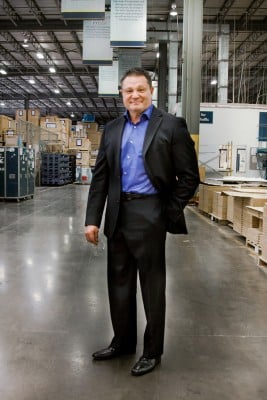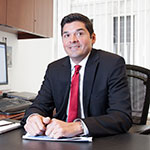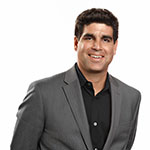
The Freeman Company has been a leader in “face-to-face marketing” since the company was founded in 1927. With five offices in the UK and 70 offices in North America, Freeman produces more than 4,300 expositions annually and 11,000 other events worldwide. The company currently produces over 57 percent of the 250 largest US trade shows and has grown exponentially since it was founded, boasting total revenues of $1.9 billion in 2014. Advertising Age recently ranked the company as world’s largest event marketing company.
As the executive vice president and chief financial officer, Julio Ramirez juggles a wide array of responsibilities for Freeman. In addition to being in charge of accounting and financial planning, Ramirez is also focused on global expansion and providing support to the mergers-and-acquisitions team. “A lot of my time is spent as an advisor to the CEO, president, and executive committee and working with and mentoring our leaders in finance around the company.”
Ramirez was raised in South Florida, and after receiving a master’s in professional accounting from the University of Miami, he entered into public accounting at KPMG, where he ultimately became a partner in the assurance practice after 11 years. At a time when minorities were a rarity in accounting firms, the promotion was a major professional development for Ramirez.
Along with 12 other consulting partners at KPMG, Ramirez cofounded the Hackett Group, a premiere strategic advisory firm in 1997. He had a pivotal role with the international growth of the company, facilitating expansion in Europe, Asia, and Latin America.
In 2009, Ramirez became the vice president and treasurer, global tax and strategic planning for Molson Coors Brewing Company, the fifth largest brewer in the world. He was one of four members of the executive team that successfully negotiated and financed the acquisition of StarBev, a major brewer in Central and Eastern Europe with operations in nine countries, for $3.5 billion.
Ramirez’s international experience has proved invaluable to Freeman as the company is focused on growing its reach around the world. When he joined Freeman, which is headquartered in Dallas, Ramirez was immediately relocated to Birmingham, England, for several months to help facilitate Freeman’s recent acquisition of an events service firm in the UK. Ramirez’s knowledge about international development has been pivotal to Freeman’s expansion vision.
“Our growth is really accelerating, and with growth comes significant challenges and opportunities. Those challenges include redesigning the back office operations to create scale, optimizing global procurement, and finding opportunities to drive greater shareholder value.”
With so many years of corporate finance and business experience, Ramirez is also very interested in making sure that more Hispanics can attain high-level positions within the Fortune 1000. “Diversity is not just the right thing to do, it makes very strong business sense,” he says.
“All business is global. The more international experience you have, the better.”
Ramirez believes it is imperative for companies to reflect their customer base and the communities in which they operate. “Our industry is quickly evolving and the demographics are changing. The next generation will be more diverse.”
According to Ramirez, Freeman has taken several initiatives to ensure that diversity is a company commitment. Ramirez is also very impressed with the third generation of the Freeman family, vice chair Carrie Freeman Parsons, who has passionately championed women’s leadership development within the company.
With all that Ramirez has experienced over the years, he can naturally offer a wealth of helpful advice to Hispanics who are looking to make an impact in the business world. Though a majority of CFOs traditionally evolve from the fields of finance and accounting, Ramirez sees that trend shifting towards broader business experience. For him, the role of CFO is becoming more akin to what he provides at Freeman: going beyond a financial advisor and “playing a critical role in framing and driving strategy and being a catalyst for enterprise change.”
Though Ramirez encourages those interested in pursuing a CFO career path to still have a strong foundation in finance and business, he also recommends acquiring experience in capital markets, information technology, mergers and acquisitions, and strategic planning. It’s a huge asset, he believes, to have as much exposure as possible to different functional disciplines, industries, and businesses of varying sizes.
Taking calculated risks is also something Ramirez believes can be a CFO differentiator. Companies are looking beyond CFO candidates that “played it safe” and “worked up the ranks” for candidates that are more entrepreneurial and willing to take career risks. Ramirez sees the advantages of a CFO candidate that started a new business, participated in a business turnaround, or worked on an IPO.
“All business is global,” Ramirez adds. “The more international experience you have, the better.” For Ramirez, that international perspective has allowed him to achieve paramount success in his current role as CFO.

